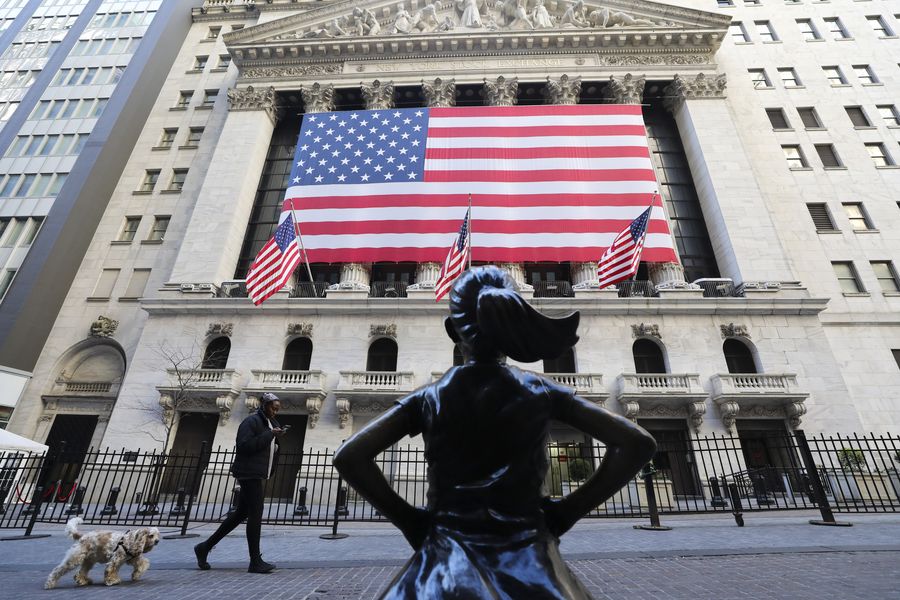
WASHINGTON: The resurgence of COVID-19 cases across the United States is threatening to derail the nascent economic recovery as many states have either paused or partially reversed their staged re-openings, economists and officials have warned.
"Economic activity in states with the most significant increases in cases in recent days, including Arizona, California, Florida and Texas, appears to be rolling over," Mark Zandi, chief economist of Moody's Analytics, wrote Monday in an analysis.
"It is increasingly clear that many governors reopened their states too quickly, reigniting the virus and hurting their economies," Zandi wrote, adding containing the virus and supporting the economy are not mutually exclusive.
The bulk of the increase in U.S. COVID-19 infections has been in the South and West, with California, Arizona, Texas, Florida, Georgia and the Carolinas accounting for the bulk of the increase, according to Wells Fargo Securities Economics Group.
"Some increase in COVID-19 cases was expected as the economy reopened and testing continued to ramp up. The rise in infections, however, has been greater than can be explained by testing alone," the Economics Group wrote Friday in a report, noting many states and metro areas have either paused or partially reversed their staged re-openings, which will weigh on economic growth this summer.
U.S. Secretary of Health and Human Services Alex Azar said on Sunday that the "window is closing" for the country to curb the surge of COVID-19 cases, while New York Governor Andrew Cuomo blamed the case increases on a failure to act earlier.
"I don't think this is a second surge. We're worried about a second wave. I think we're still in the first wave, and this is a continuation of the first wave, and it was a failed effort to stop the first wave in the country," Cuomo told NBC's Meet the Press on Sunday.
Even in the absence of new containment measures, the renewed threat of the coronavirus will likely lead to more cautious consumer and business behavior and weigh on the recovery nationwide, according to economists.
"The third-quarter bounce in real GDP (gross domestic product) growth, which we have been expecting to be almost 20% annualized (after an over 30% annualized decline in the second quarter), is in jeopardy," Zandi said, urging Congress to pass another coronavirus relief bill to help support the economy.
"Lawmakers are expected to settle on another fiscal rescue package in the next few weeks, and the price tag should be getting bigger with the new infections. If they fail, the economy will almost surely contract again this fall," he said.
The U.S. economy contracted at an annual rate of 5 percent in the first quarter this year, according to the Commerce Department. That figure, however, still does not fully capture COVID-19's economic damage, and many analysts believe that the decline in the second quarter is expected to be much deeper.
A number of Federal Reserve officials have also warned that the U.S. economy is expected to grow more slowly than people had hoped months ago as the country cannot stop the community spread of COVID-19.
"My forecast assumes growth is held back by the response to intermittent localized outbreaks -- which might be made worse by the faster-than-expected reopenings," Chicago Federal Reserve Bank President Charles Evans said last week, expecting the U.S. economy unlikely to return to its pre-pandemic level of output until late in 2022.
"So even after three years, my projected recovery places us below where the economy would have been had the virus not occurred. Unfortunately, I think some previously expected trend growth has been permanently lost," he said.
Eric Rosengren, president of Federal Reserve Bank of Boston, estimated that U.S. unemployment rate will remain in double digits by the end of this year as efforts to contain COVID-19 so far have not been particularly successful in the country.
"This lack of containment could ultimately lead to a need for more prolonged shut-downs, which result in reduced consumption and investment, and higher unemployment," Rosengren said earlier this month, adding the economic rebound in the second half of the year is likely to be less than what was hoped for at the outset of the pandemic.
Since February, U.S. employers have shed nearly 20 million jobs from payrolls, reversing almost 10 years of job gains, according to the Labor Department. The unemployment rate jumped to a post-World War II high of 14.7 percent in April, and then moved down to a still very elevated 13.3 percent in May.
The number of COVID-19 cases in the United States has topped 2.56 million as of Monday afternoon with over 125,000 deaths, according to the Center for Systems Science and Engineering (CSSE) at Johns Hopkins University.
"Were the infection to grow exponentially because of relaxed social distancing practices among the states and communities, we would expect to see the number of cumulative coronavirus cases to approach 2.8 million in the week leading up to July 4, the next test of our willingness to stop the spread of infection," said Joseph Brusuelas, chief economist at accounting and consulting firm RSM US LLP.